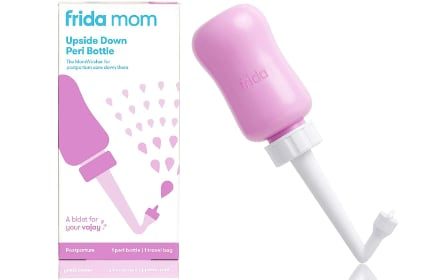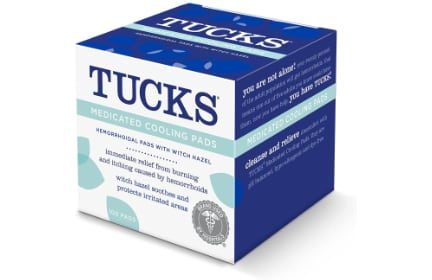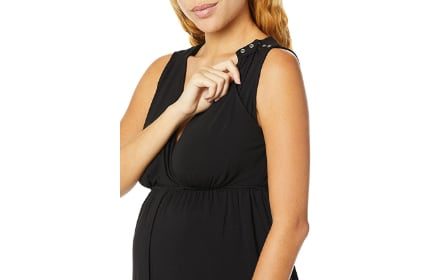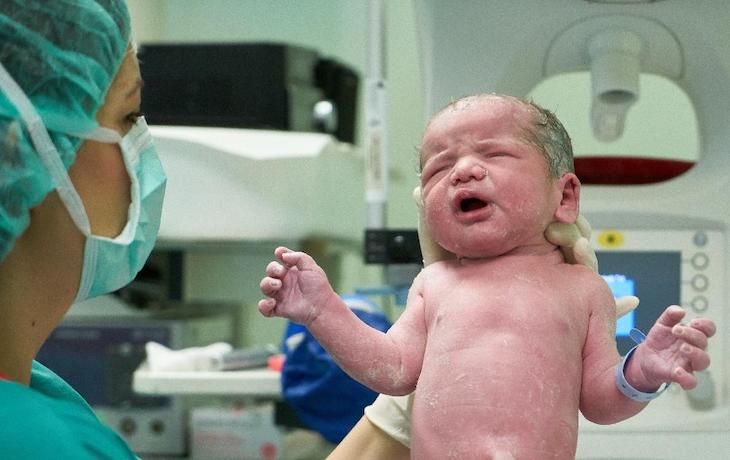We’ve spent the past year focused on some pretty heavy topics: supply chain failure, COVID variants, rabbit starvation, and how to harden yourself against societal collapse. Let’s start winding down 2021 with a medical emergency that many of us deal with, but usually has a happy ending: childbirth.
My wife and I have three children from four pregnancies. None of them have gone according to plan:
- 2013: Induced labor after passing the due date, which led to an emergency c-section.
- 2017: Brutal miscarriage that nearly killed my wife.
- 2018: Second son born through vaginal birth after cesarean (VBAC). The baby required more time in the hospital due to high bilirubin levels.
- 2021: First daughter born through a second VBAC. The birth went well, but my wife suffered preeclampsia before and after, which necessitated an extended stay in the hospital.
I’ll share our experiences with the best stuff to bring, what to be prepared for, and how to be a good supporting player.
Summary:
- Err on the side of packing light, assuming you can make store runs for odds and ends.
- Bring at least one empty bag to take home goodies from the hospital.
- Some essentials for mom: a comfortable hospital gown, a good perinatal bottle for cleaning, and adult diapers.
- Bring a car seat for the baby since the hospital won’t let you leave without one. Consider paying a little more for a model that’s easier to install and adjust.
- Pack plenty of distractions from boredom and anxiety that don’t require much mental bandwidth.
- If you’re not the one giving birth, don’t be ashamed to get all the sleep you can. You’ll be in a better position to care for mother and baby.
- Don’t blindly trust clinicians. Ask questions, do research, and don’t be afraid to get a second opinion if something isn’t right.
Pregnancy go-bag(s)
Just like you’d pack a go-bag for general emergencies, it’s a great idea to have a bag packed and ready to go during the third trimester so you can handle a problem or the big event suddenly popping up.
My wife and I put this kit together:
Many of these suggestions may seem obvious, but when you’re dealing with the stress of welcoming a child in the world, it’s helpful to have a checklist even for the obvious. You of course want changes of clothes, a car seat, and phone chargers. Many hospitals won’t let you leave with the baby until they confirm that you have a car seat.
The only advice I’ll offer for car seats is you get what you pay for. I struggled with Graco car seats for years. With the new baby we opted for a slightly more expensive Chicco model and it made all the difference in the world in terms of installation and getting the kid in and out.
You want to err on the side of packing too little instead of too much. If you’re in a hospital you’re also probably near other stores where you can buy what you need. And you don’t want the hospital room cluttered with stuff when it’s showtime.
Generally, we like to go with a suitcase for my wife, a backpack for me, and an empty diaper bag for the baby. We leave the diaper bag empty because the hospital will give you all sorts of stuff like formula and diapers and you want something to take all that home in.
Essentials for mom
Whenever one of my wife’s friends is having a baby, she gets them two things: a Frida Mom bottle and a big pack of Depends adult diapers.


This gift is usually not appreciated…at first (imagine unwrapping a big pack of adult diapers in front of your friends). But after the birth, she always gets a huge thank you from new mothers who now understand the icky realities of childbirth.
After giving birth, you’re going to be a bit of a mess for a while. Even if you have a c-section, you’re going to be oozing various fluids. Hospitals will probably give you stuff to deal with that, like a perinatal bottle to clean yourself and mesh underwear with pads to absorb the mess — but they usually suck. The perinatal bottles can’t reach the tight spots and the mesh underwear and pad combo is both uncomfortable and ineffective.
Frida makes a line of products for both new moms and babies, and I recommend anything they make. It’s all good stuff. Their perinatal bottle is particularly effective at getting into areas other bottles can’t.
You may not relish the thought of wearing adult diapers, but take the advice of my wife: swallow your pride and wear them until things clear up. You’ll be more comfortable, they’re easier to put on than the mesh underwear, and they won’t leak like the pads. (I’ve been told the mesh underwear works better if you use a baby diaper instead of a pad, but we have not tested this.)


Modern Maternity Gowns
Also in the kit are various products to soothe the birthing area, like Tuck’s pads, witch hazel, and Demoplast. The hospital might provide some of this stuff, so you can leave it out if you need to. Just know that you might do better with some products than others. My wife responds well to Dermoplast but some women don’t.
And don’t forget basic comfort items. My wife is a big fan of the Motherhood Maternity gowns, which are more comfortable than hospital gowns but have all the access your medical team needs. If mom has long hair, hair ties are essential to keep the hair out of her face during labor.
Essentials for dad
As dad, your job is to be helpful and not annoying. Make sure to pack up important documents, like the mother’s list of medications and allergies, a birth plan and living will if you have them, and insurance cards.
Bring a sleep mask and earplugs. This may sound selfish, but mom isn’t going to sleep well no matter what. She’ll likely be hooked up to machines and poked and prodded at all hours by the nursing staff. But you might have a chance to sleep well, and that’s going to put you in a better place to make important decisions. Plus you’re probably the one running errands and driving mom and baby home. You can’t take care of other people if you don’t take care of yourself.
When my wife is in the hospital, I often find myself making after-dark errands, and I like to have something for defense. Pretty much every hospital bans firearms, but pepper spray is discrete, legal, and effective if need be. I like the POM pepper spray because it squirts in a stream that won’t contaminate a whole area, it has the highest capsaicin concentration on the market, and it comes in a small concealable can. See our guide to the best pepper spray to learn more about why you should carry a can and how to use it effectively.
Combating boredom
If your only experience of childbirth is from Hollywood movies, you’d expect it to be much more exciting than it usually is. Hospital rooms are some of the most boring places on earth, even when you’re in labor, and that makes whatever anxieties you’re experiencing all the worse. And if you’re not the one giving birth, there are going to be lots of times when mama just needs to rest and you need to quietly pass the time.
That’s why the kit is full of suggested distractions like a Nintendo Switch, a Kindle e-reader, and an iPad.
I recommend bringing a variety of stuff, especially things you can do mindlessly. I find it impossible to concentrate in hospital rooms, so as much as I’d like to be productive on my laptop or read a text-heavy book, I have to admit that it’s largely pointless. Even though I have trouble reading during these times, I always bring my Kindle Paperwhite because I can bring dozens of books without a lot of extra weight.
I bought a Nintendo Switch on a whim after my wife’s miscarriage, and it proved to be a sanity saver. My wife isn’t a gamer, but we played a lot of Mario Kart together to distract from the pain. When my second son was born and we were hanging out for days as he “cooked” under the blue light, the mindless grinding of Disgaea 4 helped pass the time.
Don’t bring any games that will make you twitchy. There’s enough to be twitchy about already.
Another sanity-saver during our hospital stays has been the iPad. My wife and I could (very awkwardly) snuggle up on the hospital bed and watch Netflix or whatever instead of daytime television.
Being a good patient advocate
As the support person, probably your most important job is being an advocate for the mother, especially when she’s sedated or otherwise distracted.
We live in a time where people are told to “trust the experts” and put absolute faith in medical professionals, but the reality is that even the best pros make mistakes, don’t consider various options, and get overloaded with patients. One of the best things you can do for a loved one in the hospital is to politely and respectfully ask questions and stay on top of things.
For example, with my wife’s second pregnancy, an ultrasound revealed that the baby had died in the womb. We respectfully requested a second opinion to be sure before scheduling any procedures. The second ultrasound confirmed that the baby was indeed gone.
Later, my wife started miscarrying, was overwhelmed with pain, and bleeding profusely. Her OB’s office basically refused to deal with us, so I took her to a hospital, where the doctor brushed her off and acted disappointed that she didn’t want painkillers. I brought her home and she continued to get worse.
I decided I had to do something, so against her protests I took her to yet another hospital to get another opinion. The doctor on call brushed her off despite copious bleeding. Thankfully, the OB on call insisted that she not be released until she was able to check her. She took one look at my wife and said she wouldn’t make it to the morning. In about half an hour she got her in the operating room and fixed the problem.
Needless to say, we switched OBs.
I’ve seen a lot of online doctors say things like, “Don’t confuse your Google search with my medical degree.” Personally, I’d avoid any doctor that was that arrogant, because doing your own research can be invaluable.
I admit I hate this meme "Don't confuse your Google search with my medical degree". It's patronising and disempowering to the patient. And displays such fragility of doctors egos that we feel threatened by the pt who has done research. pic.twitter.com/jARCnyDQkP
— Dr Gail Ashford (@drgail3) May 27, 2018
When my wife was pregnant with our second son, our OB had just assumed she’d want another c-section, and we didn’t even know there was another option. But in my online travels, I stumbled upon VBAC and we broached the idea with the doctor.
Most doctors and even most hospitals won’t perform a VBAC because it’s considered ultra-high risk. Thankfully, my wife’s OB had permission at the only hospital in the area to perform VBACs. And she clearly laid out the risks. Basically, both repeated c-sections and VBACs have a risk of a lethal uterine rupture. The difference being that if a rupture occurs during a VBAC she’d be in a hospital with medical staff on hand, as opposed to a rupture caused by multiple c-sections, which could happen at any time.
My wife opted for the VBAC, which was a success, largely thanks to her OB’s brilliant decision to induce labor with a foley catheter (usually used for prostate procedures) instead of relying solely on chemicals. She had a second successful VBAC with our third child that didn’t require induction at all. Now I wonder if that first c-section would have happened at all if we had her current OB then.
All of that is to say: don’t be afraid to educate yourself and talk options over with your doctor. You might think of something they’ve missed, and a good doctor will be happy to discuss it with you as long as you’re a civil, intellectually-honest adult about it. If they treat you like a moron or dismiss your concerns, find a new doctor. Your life may depend on it.

You are reporting the comment """ by on